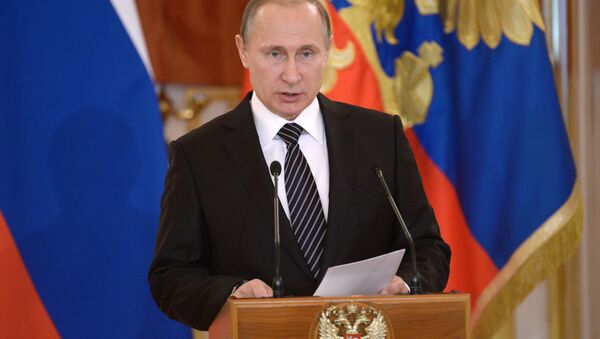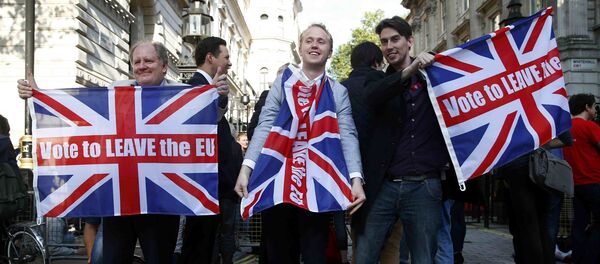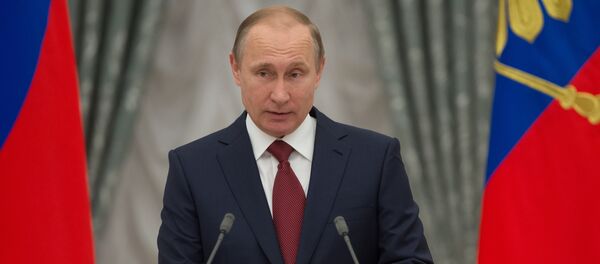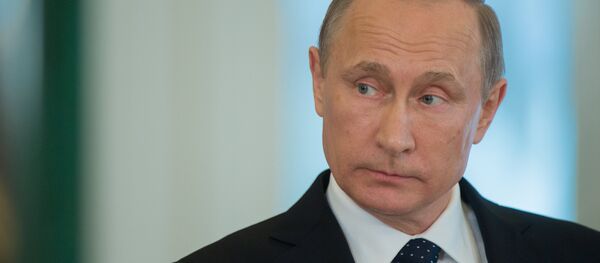Following the Brexit vote voices have emerged in the West claiming that Moscow could have had a hand in the British "Leave" campaign; the absurdity of those claims is obvious, however, some Western media have not given up and are accusing Russia of being "jubilant" over Britain's potential withdrawal from the EU.
"There is no doubt that Moscow was hoping for Britain to leave the European Union," Mark Galeotti of Vox.com wrote Tuesday, "Its propaganda channels such as RT eagerly championed the "Leave" case, and following the narrow but clear vote in the UK to leave the EU, Russian newspapers and commentators were jubilant."
In fact, Galeotti has repeated British Prime Minister David Cameron's earlier allegations that Moscow is somehow "interested" in Britain's withdrawal from the European bloc.
However, these claims bear no relation to reality.
During a Tuesday press briefing in Moscow Russian Foreign Ministry spokeswoman Maria Zakharova stressed that the Russian stance on the Brexit vote is crystal clear: the UK's EU referendum is an internal affair of Great Britain.
"As for results and consequences — this decision hasn't been formalized. What should be done — we should wait until the public decision will be formalized by the British government. Only after that can we speak about the Russian reaction. As far as we understand, this decision will affect the European Union. In any case, we are for the development of cooperation with the EU and United Kingdom," Zakharova emphasized.
Moscow does not believe that Brexit will influence the EU sanctions policy toward Russia.
"There are no expectations. I don't believe that this position will change," Chizhov told Sputnik, echoing Russian President Vladimir Putin's statement made at the Shanghai Cooperation Organization summit in Tashkent last week.
At the same time, the Kremlin does not demonstrate any signs of excitement over the potential consequences of Britain's referendum.
"We note the statements that come from the British Parliament. They are very mixed, that is why based on this, we say that the situation is yet unclear and unpredictable," Kremlin spokesman Dmitry Peskov told reporters Monday.
Moscow envisages that Britain's potential withdrawal would obviously affect global markets and may have a short-term negative impact on Russia's economy. However, regardless of Britain's decision on whether or not to leave the EU, Russia aims to develop its relations with both the European bloc and the UK.
Commenting on the issue, French journalist Hildegard von Hessen am Rhein of Boulevard Voltaire called attention to the fact that in contrast to Washington and Berlin, Russia has never interfered in Britain's domestic affairs.
"From the height of his arrogance and Russophobia that has put down its roots in Europe under Washington's influence, David Cameron claimed that President Putin "might be happy" with Brexit. By this remark he purportedly wanted to scare Britons. However, that had not worked. While Obama allowed himself to interfere in Britain's affairs, and Merkel threatened the English, Putin did nothing of the kind. One might wonder on whose side is democracy today?" the journalist asked.
Von Hessen am Rhein quoted the Russian leader who stressed that Moscow did not interfere in the UK's referendum, did not try to influence the process and never discussed the issue.
"Prior to the vote in the United Kingdom and after the vote, I have already said that we have never interfered, never discussed this, we acted very properly in my opinion. Of course, we closely followed what was going on, but did not influence this process and did not even attempt to do so," Putin stated at the SCO summit in Tashkent.
"Statements made by the UK Prime Minister Mr. Cameron, before this plebiscite, before this referendum, on Russia's stance, have no basis and never have," the Russian President underscored.
According to the French journalist, Eurocrats and their backers should take a glance in the mirror before accusing Russia of influencing the results of the recent British referendum.
She believes that Putin has just nailed it when he linked the Brexit vote with the excessively high concentration of power within the administrative body of the EU and compared the European Parliament with the High Council of the USSR.
"The percentage of mandatory decisions made by the European Parliament is larger than that of mandatory decisions made by the High Council of the USSR in regard to its member-republics. This means that the powers are highly concentrated within [the administrative body of the EU]," Putin underscored, adding that the referendum indicated that Britons are not satisfied with the EU-led dissolving of national borders.




